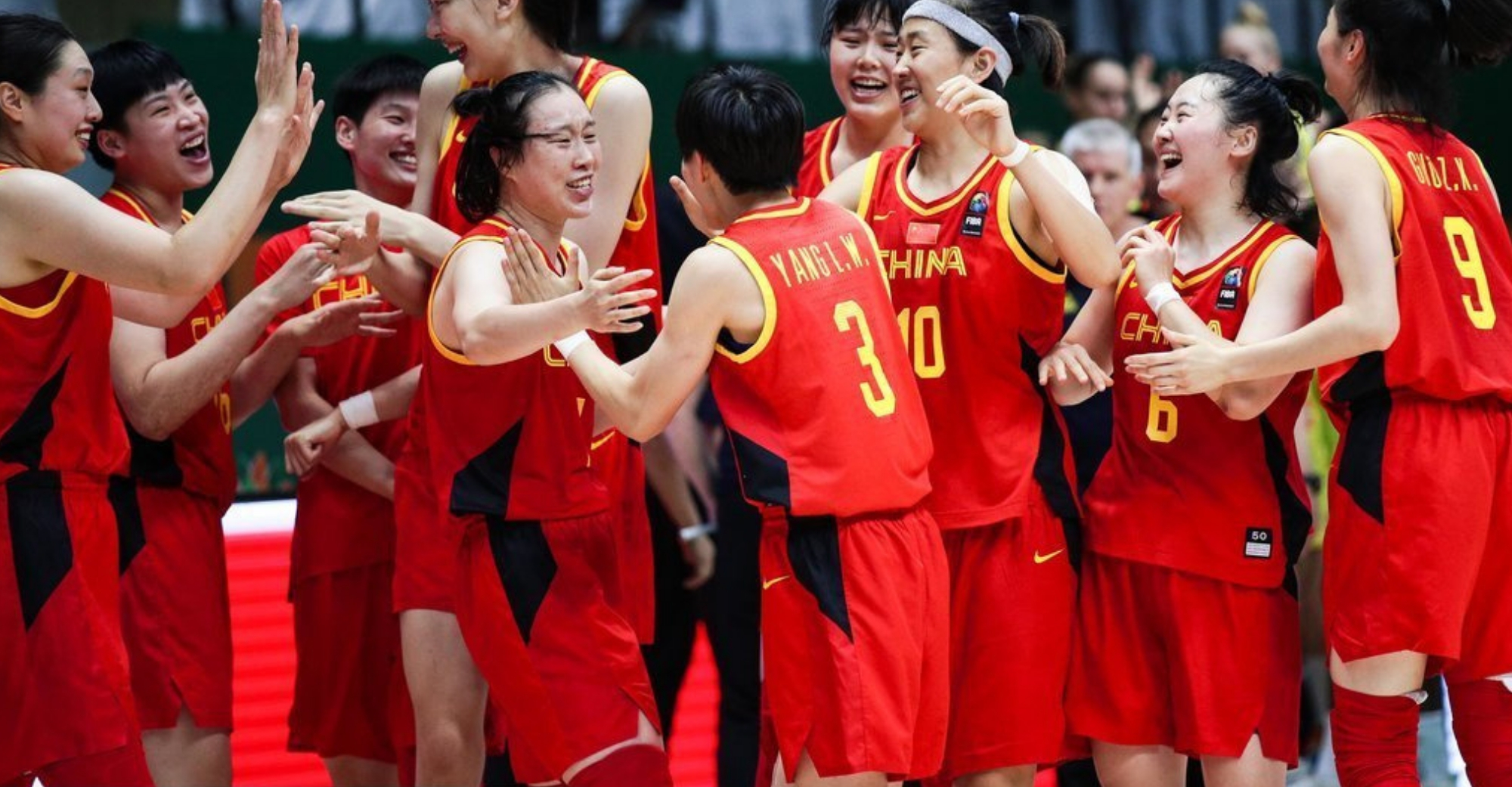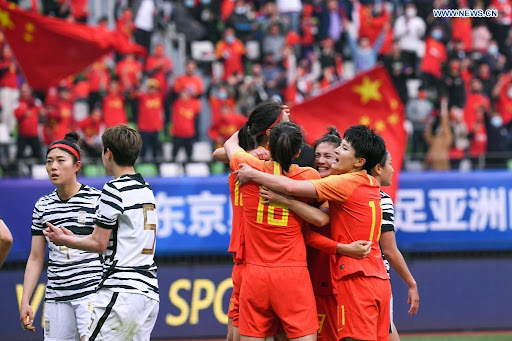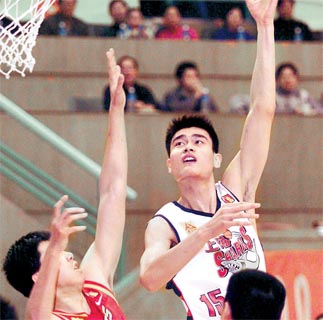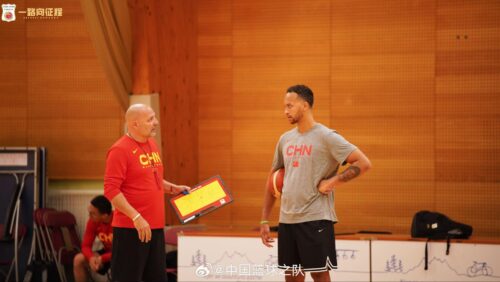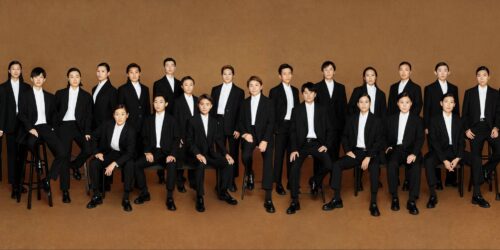China at the Tokyo Olympics: What to watch for
Summer Olympics preview, China edition: Who are the athletes to watch, what are the can't-miss events, and can China rebound from its poor showing in Rio?
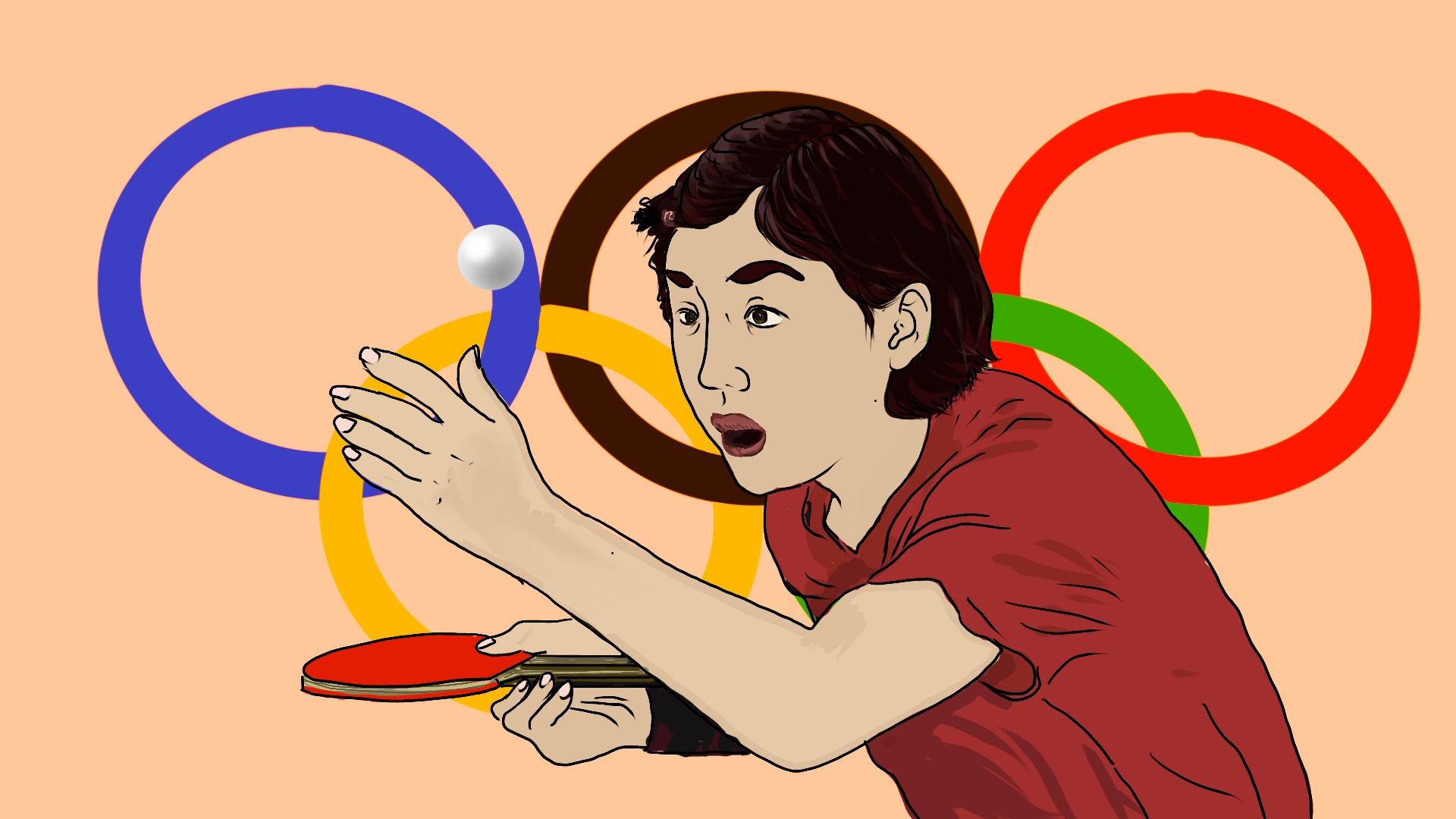
Don’t look now, but the Summer Olympics begins this Friday. Team China has arrived in Tokyo with its largest overseas team in history, a 777-person delegation that includes 431 athletes competing across 225 events in 30 sports. (Only the 2008 Beijing Games delegation was bigger, with 1,099 people and 639 athletes.)
For China, the goal is always gold. At the Beijing Olympics in 2008, it topped the table in gold medals, with a whopping 51. According to those standards, its performance at Rio 2016 was disappointing, when it won only 26 golds — behind the U.S.’s 46 and Great Britain’s 27.
Speaking to people within the Chinese Olympic Committee (COC), it’s clear that finishing third in total gold medals is not acceptable. There has been significant investment in the past four years in the Olympic set-up, from upgrading facilities to hiring expensive foreign coaches.
But China will be pushed by both Great Britain and hosts Japan, which has athletes competing in every event. Japan has seen the emergence of a number of gold-medal hopefuls, such as tennis star Naomi Osaka, wrestling phenom Yui Susaki, and Ryo Kiyuna in the newly added sport of karate. The home crowd — albeit limited due to COVID-19 protocols — should provide a boost.
The effect of the pandemic — which delayed these Olympics by a year — is unknown. Most Chinese athletes have been absent from international events for nearly two season now, due to extremely tight border controls in China. How this lack of high-level competitive experience will affect Chinese athletes remains to be seen.
Expect China to do well in table tennis, diving, weightlifting, gymnastics, badminton, and shooting. Since the Los Angeles Olympics in 1984, 74 percent of China’s 224 gold medals have come from these six sports.
We’ll be watching for this and much more.

Women’s basketball
The China women’s basketball team arrived in Tokyo in good spirits, accompanied by the one and only Yáo Míng 姚明. Drawn in the preliminary Group C alongside Australia, Puerto Rico, and Belgium, China have a complex route to the quarterfinals.
Ranked ninth in the world, China will have to get past second-ranked Spain or sixth-ranked Belgium to secure a top-two qualifying spot in the group. Thankfully, 23rd-ranked Puerto Rico offer coach Xǔ Lìmín 许利民 and his team an opportunity to score some valuable points to perhaps earn a place in the next round as one of the best third-placed teams. That being said, China will feel like they have the chemistry as a unit to perhaps even top the group. The team secured its Olympic spot by beating Spain 64-62 last year:
China starts its campaign against Puerto Rico on July 27 before taking on Australia and Belgium on July 30 and August 2. The women’s basketball tournament runs until August 8.

3×3 basketball
Tokyo has also introduced a new 3×3 basketball tournament to the Games. The short five-day tournament will see both the men’s and women’s teams take to the court.
Unlike the full basketball competition, the 3×3 tournament sees all the teams sorted into a single group. The top six (out of eight) move on.
Promising short, sharp games with plenty of flair, the slightly more randomized aspect to the results combined with the open format gives any team the chance to secure some silverware.
The tournament takes place between July 24 and 28.

Women’s soccer
China’s women’s soccer team faces a similar challenge as the basketball team. Drawn into a group against two high-ranked sides in Brazil and the Netherlands as well as against a lower-ranked team, in this case, Zambia.
Like the basketball group stage, the top two teams secure a quarterfinal place, with the best third-ranked sides also advancing.
China’s recent heroics against South Korea to secure its spot in Tokyo will be fresh in the minds of the players and should give them serious confidence. While the Netherlands and Brazil are two of the most fearsome teams in the women’s game, the team’s ability to go an get a result against better opposition, such as the 1-1 draw away from home against Australia at the height of COVID, tells you all you need to know about the mentality of this side.
China’s soccer campaign kicks off against Brazil on July 21 (soccer begins before the opening ceremony), before it plays Zambia and the Netherlands on July 24 and 27. The women’s soccer tournament runs until August 6.

Boxing
Boxing flyweight Hú Jiànguān 胡建关 is one of China’s best gold medal hopes inside the ring. The Rio bronze medalist secured his place in the Games after knocking out Thailand’s Thitsan Panmot in the final of the qualifying tournament.
A lot of Hu’s success will depend on the draw, with the tournament progressing as a knockout from the Round of 32. Potential pitfalls for Hu include the Rio gold and silver medalists, Shakhobidin Zoirov of Uzbekistan and Venezuela’s Yoel Finol, as well as Britain’s Galal Yafai. Russian fighter Misha Aloyan, who beat Hu in the semifinal in Rio, is out due to a doping ban.
Hu steps inside the ring on July 26. The men’s flyweight tournament finishes on August 5.
Rugby Sevens
While not a favorite for any medal, China will be appearing in its first-ever major international rugby tournament when the women’s sevens rugby team takes to the field.
Although it’s unlikely that China will progress from the group stage, the team does have an outside chance. While a victory against either Australia or the U.S. looks very unlikely, China does have the opportunity to upset hosts Japan. The Japanese women’s team is yet to replicate the success of the men’s teams in the sport, and China’s previous performance in New Zealand on the global sevens series was excellent, defeating the traditional sevens side Fiji and thrashing Spain.
Unlike the full 15-a-side rugby games, Sevens sees teams face each other in short seven-minute-per-half games of seven-a-side, played on a full-sized rugby field. The openness of the game and the value placed on individual athleticism means that upsets are far more likely.
Since introducing the sevens to the Olympics in Rio, the Chinese Olympic Committee has actively invested money into the program. A bit of success in the Olympic competition here and the women’s sevens team can build up its own Olympic narrative that could really help the sport gain attention back home in China.
China plays its group games on July 29 and 30. The finals are the following day.
Gymnastics
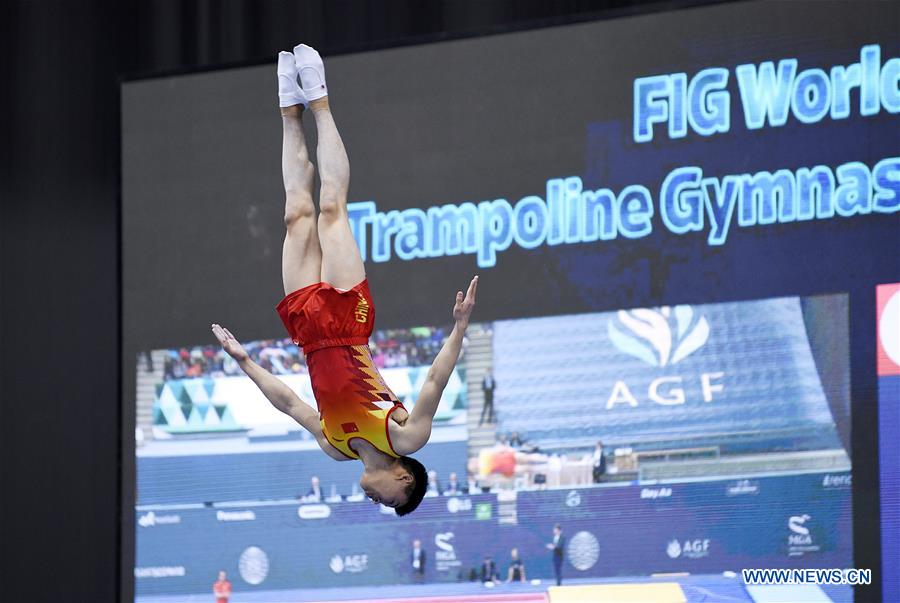
The gymnastics team looks diminished from the glory days of Beijing 2008. That year, China won 11 golds out of the 18 on offer, nine more than both the U.S. and Russia.
Fast forward to Rio de Janeiro eight years later, when China won just a measly silver and four bronzes. Prospects for the gymnastics team have not improved much since then. The most recent Gymnastics World Championships in 2019 saw China once again get shut out from gold, picking up just three silvers.
During the pandemic, Chinese gymnasts were mostly locked up in a perpetual training camp. They did not participate in any World Cup events, in either artistic or rhythmic events.
China’s biggest gold medal hope comes from Gāo Lěi 高磊, the trampoline king. While China has struggled to score big in trampoline gymnastics as a team, Gao Lei remains the most dominant male athlete in the scene.
Gao has won the individual gold at every single World Championship since 2015, with his only blemish being a bronze in Rio. Now firmly at his peak, the 29-year-old arrives in Tokyo as China’s top (and perhaps only) gymnastics gold-medal hope.
Artistic gymnastics starts on July 24 and runs through until August 4, while rhythmic gymnastics takes place from August 6 to 8. Gao and the trampoline gymnasts start their campaign on July 29, finishing on July 31. The Ariake Gymnastics Center will host all events.

Weightlifting

While the medal prospects of the gymnasts look faint, the same cannot be said for the weightlifting team, in which China is dominant at the lower weight classes. The men’s team of Lǐ Fābīn 李发彬 (61kg), Chén Lìjūn 谌利军 (67kg), Shí Zhìyǒng 石智勇 (73kg), and Lǚ Xiǎojūn 吕小军 (81kg) are all the current world champions, with Li, Shi, and Lu currently holding world records.
The female team will also be just as confident as the men, despite the absence of Rio gold-medalist Dèng Wēi 邓薇 (64kg) and world-record holder at 55kg Jiǎng Huìhuā 蒋惠花, who are both out with injuries. The group includes Hóu Zhìhuì 侯志慧 (49kg), Liào Qiūyún 廖秋云 (55kg), Wāng Zhōuyǔ 汪周雨 (87kg), and Lǐ Wénwén 李雯雯 (87kg).
Expect each of the Chinese weightlifting athletes to come away with a medal.
Weightlifting starts on July 24 and runs until August 4 at the Tokyo International Forum.

Diving
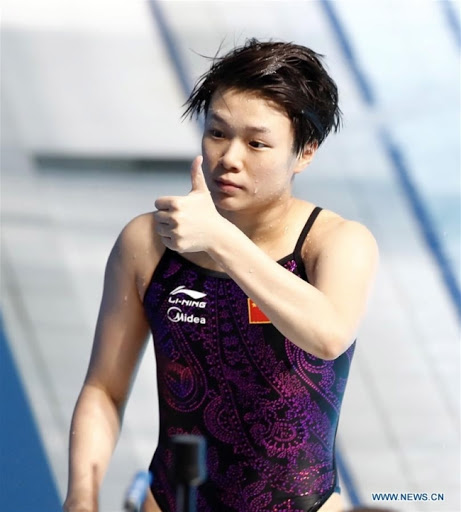
The goal for Team China in diving is quite simple: win every gold.
It may sound arrogant, but you won’t find many people betting against them.
In the women’s events, Shī Tíngmào 施廷懋 and Zhāng Jiāqí 张家齐 are the two stars. Double Rio champion Shi is likely to continue her supremacy from the 3m springboard.
Zhang, meanwhile, makes her Olympic debut. Competing in the 10m platform, the 17-year-old world champion knows that a lot of pressure will be on her shoulders. Backing her up is the youngest member of China’s 431 athletes in Tokyo, Quán Hóngchán 全红婵. At just 14, Quan will be competing in the 10m platform and the 10m synchronized alongside Zhang.
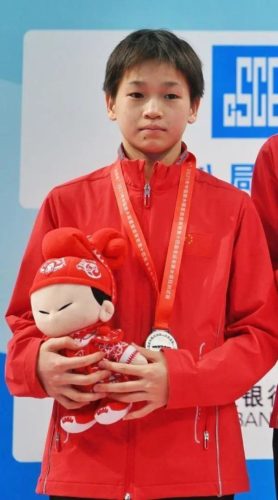
On the men’s side, the duo of Chén Àisēn 陈艾森 and Cáo Yuán 曹缘 are expected to defend their golds at 3m and 10m. For Chen, the biggest obstacle is Great Britain’s Tom Daley, who recently returned to form, winning the world championship at 10m in May — an event that Chen was absent from.
Diving starts on July 25 with the women’s synchronized events and finishes on August 7 with the men’s 10m platform.

Badminton

The major story for China badminton at Tokyo is the absence of Super Dan, Lín Dān 林丹, who won two golds at Rio. One of the victims of the delay to the Games, the 37-year-old called it quits last summer.
While a fifth Olympic appearance wasn’t to be for Lin, defending Rio champion Chén Lóng 谌龙 will be at Tokyo. However, a decline in form in the last five years has seen the bookies put Chen Long as a relative outsider at +800. The favorite for the men’s event is the home star Kento Momota (+160), the defending world champion, who is one of the faces of Japan’s Olympic team. He will have raucous support from the home crowd.
The women’s side is as open as ever. Chén Yǔfēi 陈雨菲 is China’s best chance of winning gold, but she’ll be up against the highly accomplished Tai Tzu-Ying of Taiwan and Nozomi Okuhara of Japan.
The badminton tournament runs from July 24 to August 2 at the Musashino Forest Sport Plaza.

Table Tennis

China are the favorites to sweep the gold medals once again in ping-pong. However, the threat to China’s superiority has never been greater.
China has Mǎ Lóng 马龙, world No. 1 Fán Zhèndōng 樊振东, and world No. 4 Xǔ Xīn 许昕 in the singles competition. All three can reasonably expect to make the semifinals. But don’t be surprised if Japan’s up-and-coming Tomokazu Harimoto emerges as champion.
The 18-year-old is perhaps the biggest challenge to Chinese ping-pong players since Athens 2004, when Wáng Hào 王皓 lost in the final to Korean Ryu Seung-min. With an ITTF World Tour Grand Final title at the age of 15 and numerous tour victories on his resume, the third-ranked Harimoto, with the backing of the home crowd, could pull an upset.
Japan also presents the most significant threat to China in the women’s game. China’s Chén Mèng 陈梦 and Sūn Yǐngshā 孙颖莎 will be pressed by Mima Ito, who is ranked second behind Chen. The two very well could meet in a final, which would be one of the best matchups in the entire Games.
In the men’s doubles, it’s a South Korean duo — Lee Sangsu and Jeong Youngsik — that is currently ranked first globally, by some margin.
Ping-pong starts with the individual competition on July 24, with the women’s and men’s finals on July 29 and 30, before the tournament moves on to the team events, finishing on August 6.

Shooting

China is no longer the team it once was in the shooting arena. Despite consistent medals in the ISSF World Cup since 2016, China has slipped behind India, Italy, and Germany.
However, with so many events and medals on offer, China will probably win at least one gold.
Xióng Yàxuān 熊亚瑄 is the pick of the bunch. The 24-year-old bagged her place in Tokyo in March by breaking the 25m pistol record by four hits. Her main rival, previous record-holder Veronika Major from Hungary, has been one of the best in the discipline for the past few years, alongside defending champion Anna Korakaki from Greece. The 25m pistol event could be extremely close.
The shooting events run from July 23 to August 2. The women’s 25m pistol takes place on July 30.

Other athletes to keep an eye on
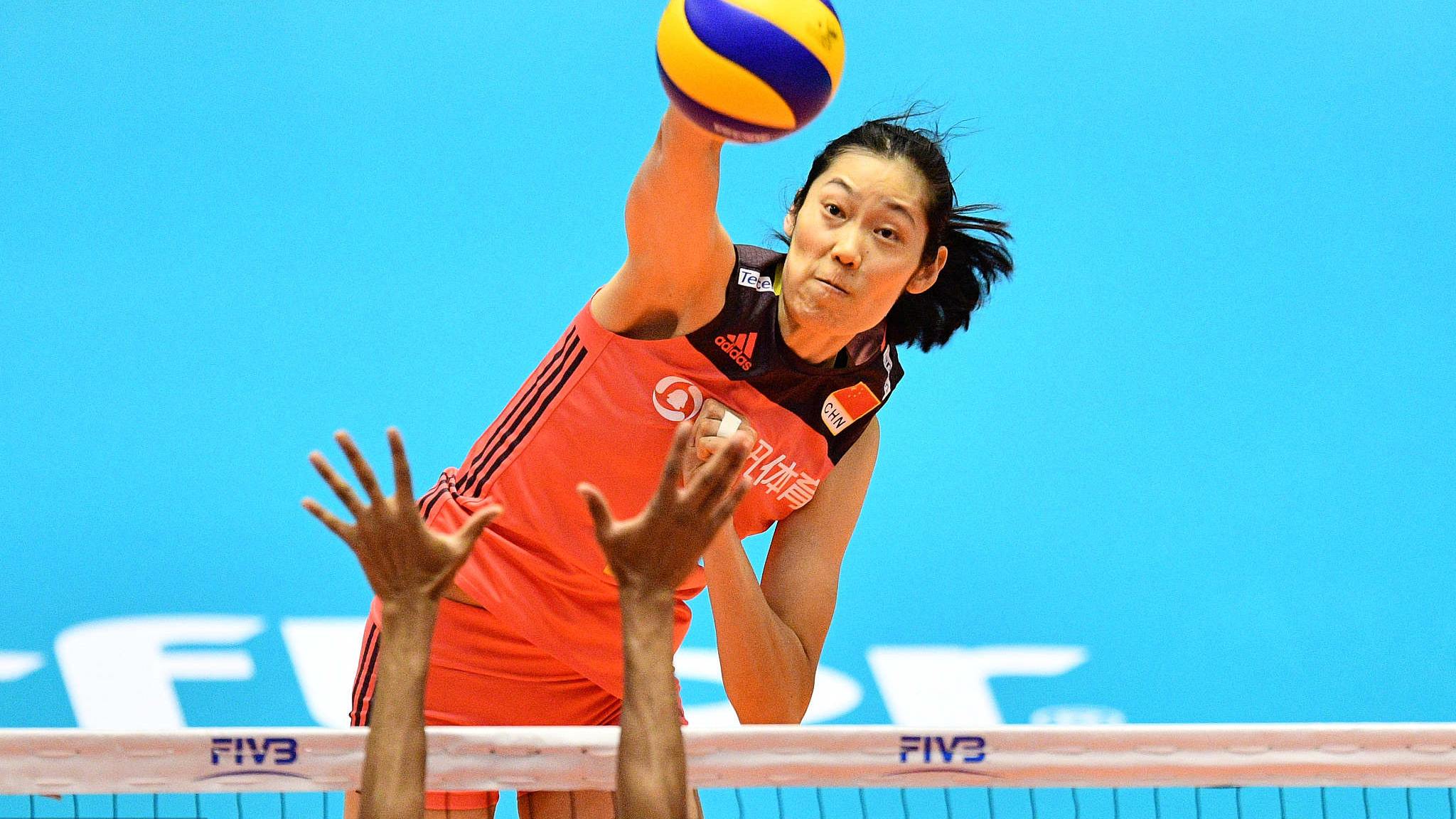
The women’s volleyball team won gold in Rio in dramatic fashion, led by head coach (and volleyball hero) Láng Píng 郎平. A depleted side disappointed in the first half of the recent Volleyball Nations League, but after Zhū Tíng 朱婷 and Yuán Xīnyuè 袁心玥 returned to the fold for second half, China went on a six-game unbeaten streak before missing out on a semifinal spot.
Team captain Zhu will be China’s first female flag-bearer when the team marches out at the Opening Ceremony on July 23.
The volleyball tournament starts on July 24, with the women’s final taking place on the final day of the Games, August 8.
Taekwondo practitioner and Rio gold medalist Zhào Shuài 赵帅 will be the other flag-bearer. He faces a new challenge at Tokyo. Despite winning gold at 58kg in Rio, Zhao has moved up to 68kg. Currently ranked third in the world behind Korea’s Lee Dae-hoon and Britain’s Bradly John Sinden, Zhao will be competing in his first international event since 2019. Without high-level competition, it could be a hard ask for Zhao to shake off the ring rust on the biggest stage, but if anyone can do it, it’s Zhao.
Zhao will go for gold on July 25.
China also has good bets in rowing. Keep an eye on the double sculls pair of Zhāng Liàng 张亮 and Liú Zhìyǔ 刘治宇. The current world champions are coached by Sir Steve Redgrave, one of the greatest rowers in the sport, and since his arrival, the pair have performed at a higher level. However, like so many Chinese Olympians, the couple has not had elite competition for more than a year.
The China Sports Column runs every week on The China Project.
